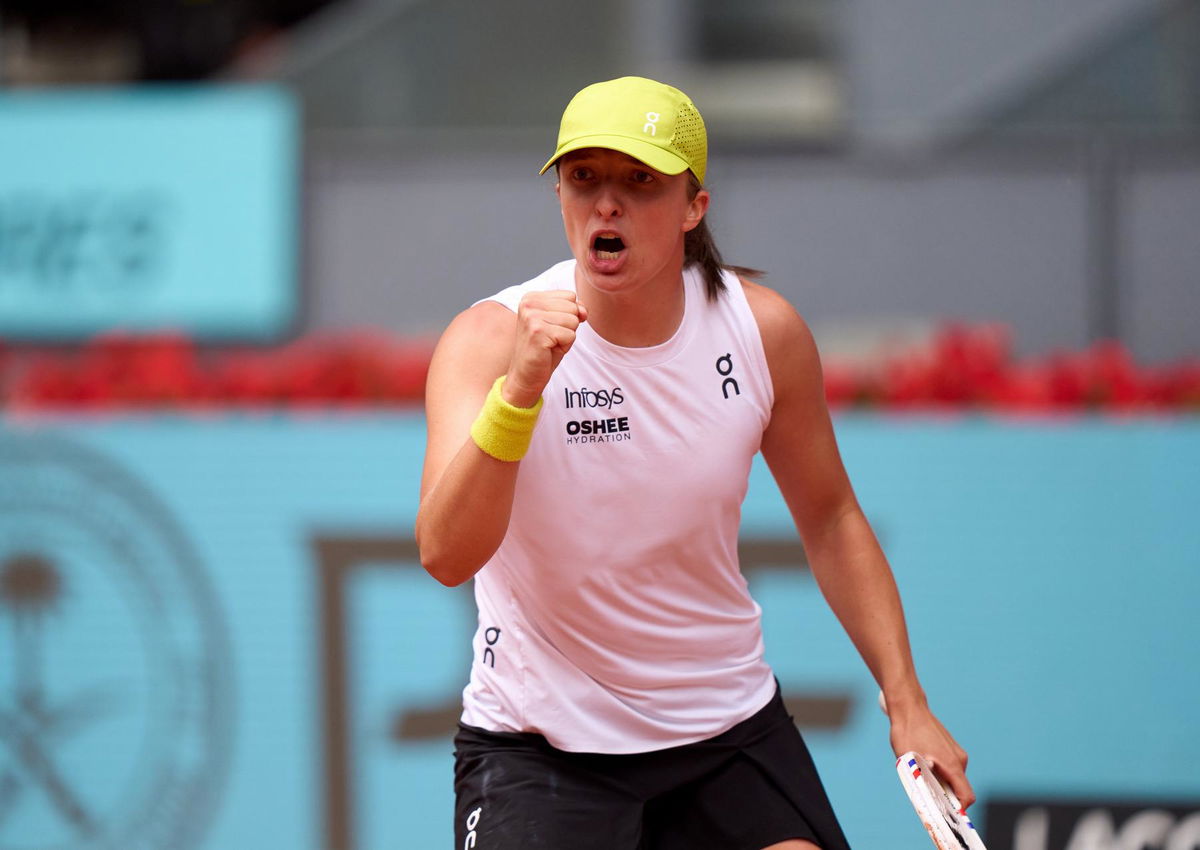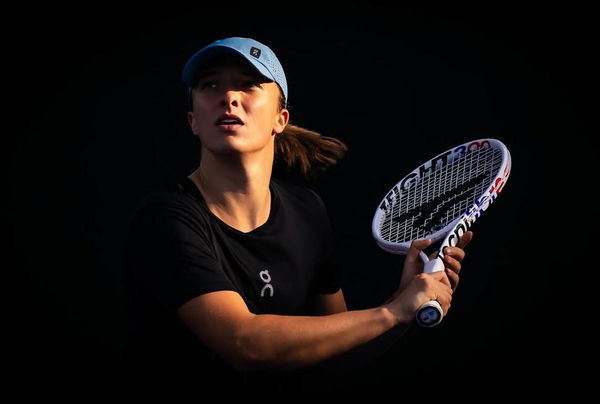
Imago
Iga Swiatek (Image courtesy – Imago)

Imago
Iga Swiatek (Image courtesy – Imago)
Polish tennis players have repeatedly spoken out against online harassment, but the level of hate aimed at them has only grown worse over time. Even Iga Swiatek pointed this out back in 2023: “The amount of hate and criticism me and my team get after losing… is ridiculous. I want people to be more careful with their comments online.” Instead of cooling down, the negativity only got worse, forcing Swiatek and other WTA players to stand up for themselves.
Watch What’s Trending Now!
Just recently, Polish women’s tennis players and the Polish Tennis Association made the decision to take action after years of online harassment. As part of the social-media campaign #HejtOutLoveIn, they signed the “Declaration of No Consent to Hate.”
As the PZT stated, “Polish tennis players and the Polish Tennis Association (PZT) are saying ‘enough’ by signing the Declaration of No Consent to Hate as part of the #HejtOutLoveIn social campaign. This gesture of solidarity is intended to show that in sport, as in life, there is only room for fair play and respect, not hate.” But how far could the impact of such campaigns reach?
ADVERTISEMENT

Imago
Image Credits: Iga Swiatek/Instagram
While it is not legally binding and cannot punish offenders but it aims to raise awareness against online harassment. Undoubtedly, hate words affect almost everyone, whether directly or indirectly. However, the campaign gained attention after Iga Swiatek recently addressed the hate she faces online.
It started last month when Swiatek lost to Emma Navarro 6-4, 4-6, 6-0 in a match in the China Open, and thereafter, the internet started hating her. Swiatek felt compelled to speak out. Therefore, she posted the screenshots of messages that she had been receiving.
ADVERTISEMENT
Comments like “Mediocre player,” “Pathetic,” and “No discipline no talent no ability to make adjustments no mental strength” poured in. Even one more commented, “You don’t deserve to come to China. Go back to Poland.”
Iga Swiatek also explained how she is frustrated that most of this negativity comes as a result of the online bots, sports betting, and so-called fans. She wrote, “These days, it’s a sad reality in the world of sport. Bots, betting, but also ‘fans’. This is worth thinking about, especially as World Mental Health Day is fast approaching.”
ADVERTISEMENT
But Swiatek was not the only such player experiencing such abuse.
Alongside Iga Swiatek, other WTA players have also faced online harassment
Online hate is a topic that is beginning to be more vocal among Polish tennis players, and Katarzyna Kawa is not an exception. She has spoken openly about receiving threats, some of which contain death threats. In an interview, she explained, “I generally don’t read too much in the media about myself … if I started reading, I’d probably conclude I don’t know how to play tennis at all.” But she is not alone in facing online abuse.
ADVERTISEMENT
Other Polish players, like Linda Klimovicova and Katarzyna Kubka, have also faced harassment. When news of this campaign was shared online, they responded together in a video. Kubka said, “Let’s show that the voice of respect can be stronger than the voice of hate.”
She added, “Respect is what counts in sport and this is the respect we are fighting for.”However, Polish players are not the only victims of online harassment; it is a global problem in women’s tennis.
Top Stories
Novak Djokovic Faces Roadblock as He Won’t Be Able to Represent Serbia After Australian Open

Iga Swiatek Breaks Silence After Coco Gauff Makes History Against Her at United Cup

Coco Gauff’s Efforts Go in Vain as Iga Swiatek-Led Team Break American Hopes at the United Cup

Carlos Alcaraz Left Speechless After Young Fan Outsmarts Him in Seoul Exhibition Against Jannik Sinner

United Cup Exit Deals Taylor Fritz a Costly Australian Open Setback as Ben Shelton Surges

Eva Lys, the top-ranked German player, has also become a subject of online abuse and harassment. After she lost to Leylah Fernandez recently at the Hong Kong Open, the 23-year-old revealed the online hate and the threats she received. As she says in a recent interview with Die Zeit, Lys says, “I’ve recently had to deal with stalkers who managed to get hold of the addresses of practice sites, hotels, and even my room numbers,” she said. But she didn’t give up on it.
ADVERTISEMENT
Under WTA, Lys and her co-workers have enforced stricter security measures in the training centers and tournaments. But as she pointed out, “Even these security measures have their limits.”
These experiences show the urgency of campaigns like #HejtOutLoveIn to combat the hate inside the online community and promote respect, safety, and justice in sport.
ADVERTISEMENT
ADVERTISEMENT
ADVERTISEMENT

